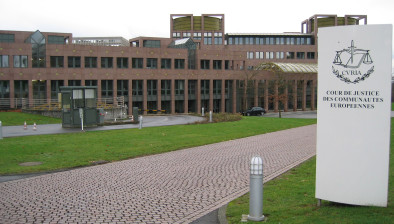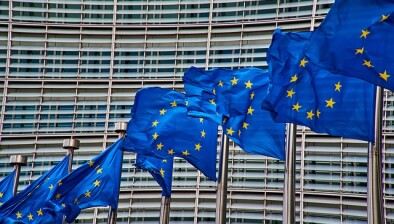EU court to consider ex-Catholics’ right to baptismal register erasure

The Court of Justice of the European Union (CJEU) has been asked whether ex-Catholics have a right under the GDPR to have their baptismal record erased upon request.
A request for preliminary ruling was submitted in January by the Brussels Court of Appeal, which is hearing an appeal in a case brought by the Diocese of Ghent against the Belgian data protection authority.
The five questions referred to the court are:
Is Article 17 (1) [of Regulation (EU) 2016/679 of the European Parliament and of the Council of 27 April 2016 on the protection of natural persons with regard to the processing of personal data and on the free movement of such data and repealing Directive 95/46/EC (the General Data Protection Regulation)], read in conjunction with the right to the protection of personal data as guaranteed by Article 8 of the Charter of Fundamental Rights of the European Union (‘the Charter’), the freedom of thought conscience and religion as guaranteed by Article 10 of the Charter and Article 9 [of the Convention for the Protection of Human Rights and Fundamental Freedoms] and the principle of separation of Church and State as enshrined in Articles 19 and 21 of the Belgian Constitution, to be interpreted as meaning that a person who was baptised as a minor and who, as an adult, wishes to dissociate himself or herself from the Roman Catholic Church, has or does not have the right to have his or her personal data erased from the baptismal register?
In that regard, does it make any difference for the purposes of Article 17(1)(c) [of the General Data Protection Regulation] that, according to the controller, the entry in the baptismal register affects the aforementioned fundamental rights (freedom of religion) of the controller and the Roman Catholic Church community it represents?
Does it make a difference in that respect that this baptismal register is not digital, but a unique material carrier in the form of book with recto-verso pages in which details of other data subjects are also given on the back?
Does it make a difference that the book itself is an historical artefact and that the baptismal register is a unique record of historical facts that are not recorded anywhere else, as a result of which the data processing also occurs for archiving in the public interest, scientific or historical research or statistical purposes within the meaning of Article 17(3)(d) [of the General Data Protection Regulation]?
To the extent that there might be a right to data erasure within the meaning of Article 17(1) [of the General Data Protection Regulation] and in so far as there might not be an exception to this right within the meaning of Article 17(3) [of the General Data Protection Regulation], is the right to data erasure by analogy satisfied by the annotation that a person has left the church in the margin of the baptismal register?
Ireland’s Data Protection Commission (DPC) has previously ruled that ex-Catholics do not have the right to obtain erasure of their personal data in the baptism registers under the GDPR.









